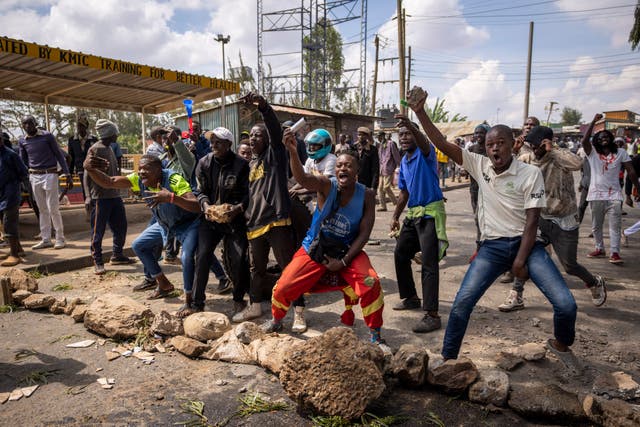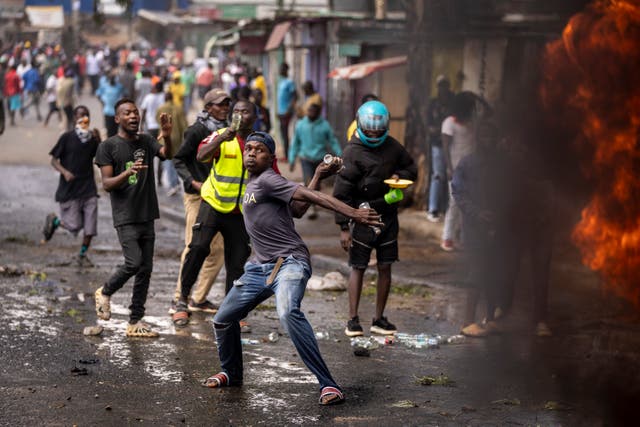Arrests as Kenya opposition leads anti-government protests
Police used teargas to disperse demonstrators demanding the resignation of President William Ruto.

At least three Kenyan legislators and several protesters have been arrested during protests organised by the opposition demanding the resignation of President William Ruto.
Opposition leader Raila Odinga joined thousands of demonstrators in the capital Nairobi and announced weekly demonstrations until the president resigns or the cost of living goes down.
Mr Odinga’s convoy of dozens of cars drove around the city after being blocked from accessing the central business district.
He made public addresses on several stops and his motorcade was tear gassed several times by police. In response his supporters pelted officers with stones.

Nairobi police boss Adamson Bungei said those arrested would be released after paying bail.
Over the weekend he said police had denied the opposition permission to hold their protests and any congregation would be illegal.
Mr Odinga insisted the protests would proceed as planned and demonstrators would march to State House, the official residence of the president.
The opposition leader said Kenyan citizens have a constitutional right to demonstrate and the role of the police is to protect them after they issue a notification in advance.

Most shops in Nairobi’s central business district closed on Monday as business owners feared looting.
Kenya’s deputy president Rigathi Gachagua said the country has lost about 2 billion Kenyan shillings (£12.5 million) due to Monday’s protests. He urged Mr Odinga to call off the protests and think about the losses to the economy.
The arrested leaders include senate minority leader Stewart Madzayo and members of parliament Opiyo Wandayi and Amina Mnyazi.
Other legislators who turned up at the designated meeting point were dispersed by police with tear gas. They retreated to parliament buildings where they announced that protests would continue through the afternoon.
Kenya’s opposition has in the past held violent demonstrations in which people have died.





